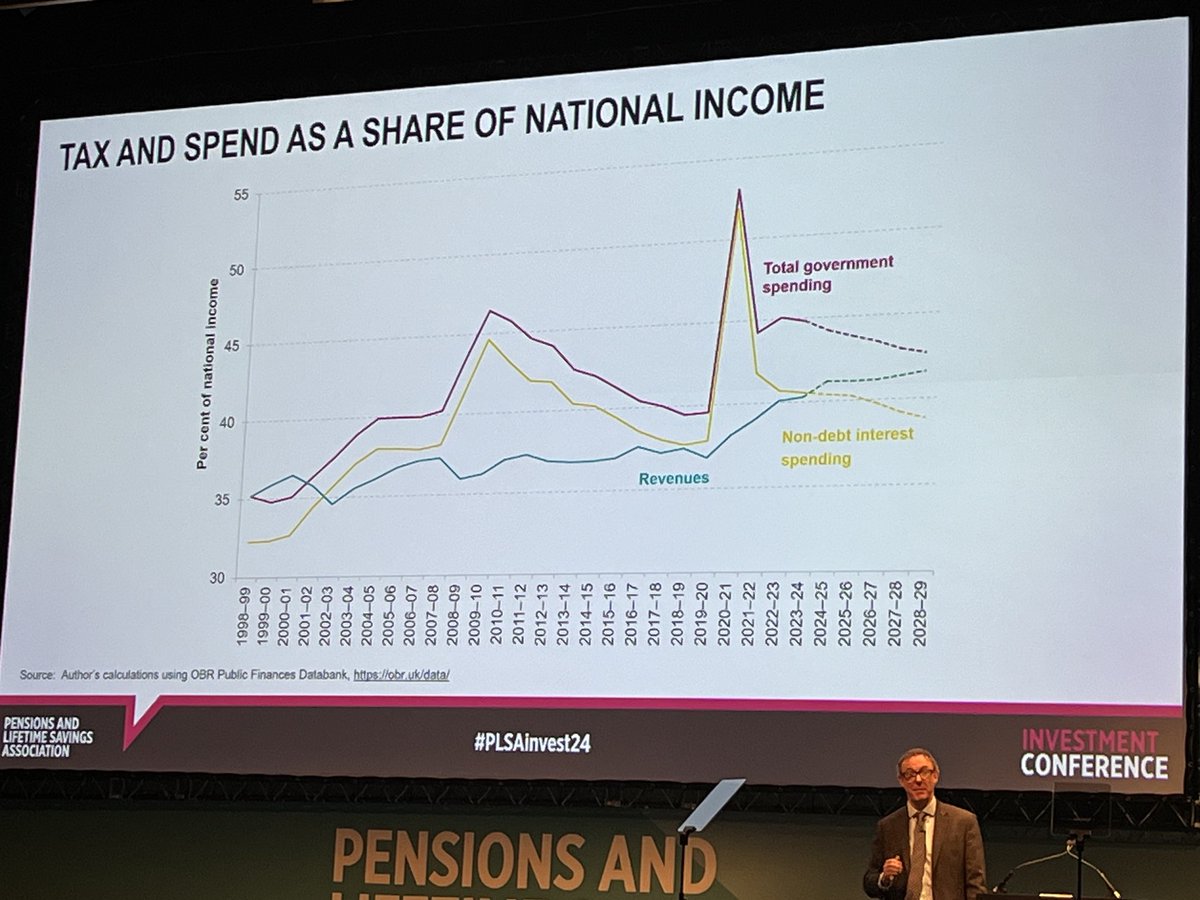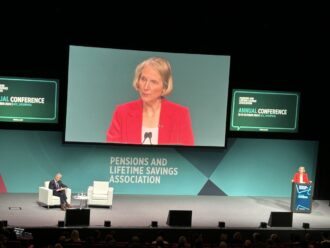In a wide-ranging speech at the PLSA’s investment conference in Edinburgh, economist Paul Johnson gave investors much to ponder.
The director of the Institute for Fiscal Studies, a think tank, offered an insightful warning when discussing the outlook for Britain’s economy. “You will have read that we went into a technical recession in the second half of last year. What I really want to stress is that it is much worse than that,” Johnson said.
“It is worse than that because that is measuring the overall size of the economy – and the overall size of the economy has been stagnant for the last two years,” he added. “That is despite the growing population. So if the size of the economy is the same and the population is bigger than the amount per person goes down.”
Johnson also pointed out that this is within the wider context of earnings growth. “This is the first time since Napoleon [1769-1821] that we have had 15 years without any earnings growth. So it is not a brilliant position to be going into a budget or election,” he said.
At the point of the election a median household income will be below where it was during the election of 2019. “One reason why the polls are where they are,” Johnson added.
Miles apart
He also noted the bizarre way the UK economy is run and measured. “The Bank of England (BoE) sets monetary policy and we have the Office for Budget Responsibility (OBR) responsible for the forecast on the basis of which the chancellor sets fiscal policy, and they are a long way away from each other in terms of their forecasts.
“Monetary policy is based on some miserable forecasts. Jeremy Hunt must be so pleased the OBR, not the Bank of England, is giving him his forecasts.”
This becomes highly relevant given the UK Budget will be held on March 6. “This indicates the level of uncertainty,” Johnson added.
There is a role and benefit for investors in all of this. “The private sector can be expected to buy nearly 8% of GDP in gilts this year, the highest on record. And twice as much each year over the next five years than it did in the previous 25 years.”
The BoE has calculated that its own quantitative tightening measures have increased the return on gilts by “a measurable amount,” Johnson said. “This costs government money and is another reason why we need to worry about the level of debt and borrowing.”
Fictional numbers
And he added a warning on the numbers as presented. “It is worth saying that the total government spending numbers are almost certainly fictional. They are what the chancellor reports, but they are certainly fictional because they depend on some significant spending cuts to come.”
Johnson cited quite an extraordinary quote from the head of the OBR, Richard Hughes, which was given to the economic affairs committee of the House of Lords. “Some people call [the projections] a work of fiction, but that is probably being generous when someone has bothered to write a work of fiction and the government hasn’t even bothered to write down what its departmental spending plans are, underpinning the plans for public services,” Hughes said.
This presents its own self-evident problems for investors.
Effective capital
In addressing a question from the floor around how to put pensions capital to productive use in infrastructure assets, and whether such capital should be UK or foreign based, Johnson responded with an in-depth answer.
“Ownership matters in different ways. There is a difference between passive and active owners. Owners that hold managers to account are different to entirely passive ownership.
“There is an issue, are they domestic or foreign ownership? Where, in broad terms, you think both sets of owners are looking for the best return, then, should not make too much difference.
“But there is a political economy issue here: they may be seen differently by government or react differently based on whether they are domestic or foreign. And there is a private versus public ownership issue where in regulated industries it matters what the structure of the regulation is, probably more than whether it is public or private ownership, although the limits on public sector borrowing can have a knock-on effect for accounting rules rather than for any other reason.
“I think it does matter; ownership can matter. It can matter for all sorts of different reasons, in different sectors, depending on the regulation, and depending on the behavior of the owners. But there is not a straight-forward answer.”





Comments